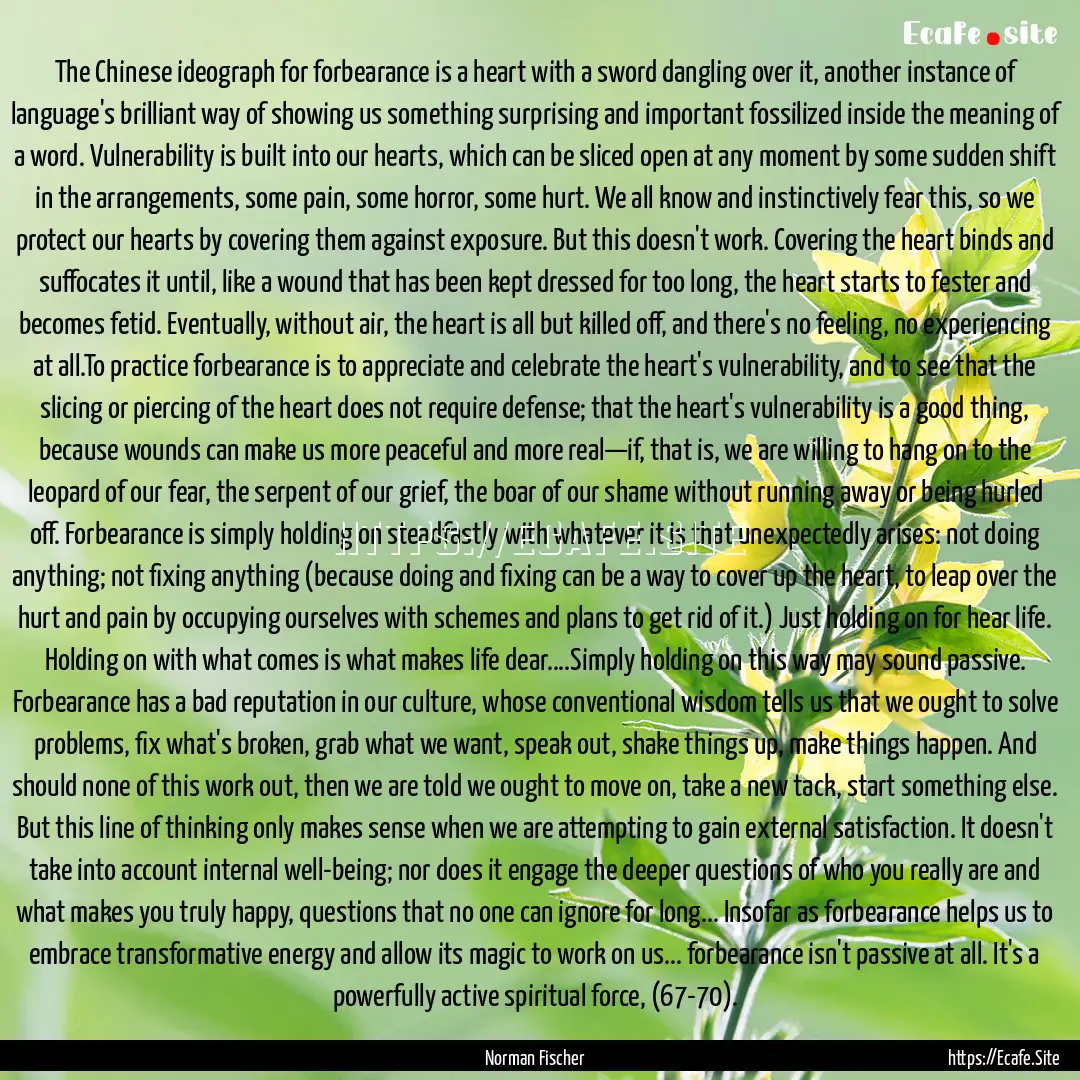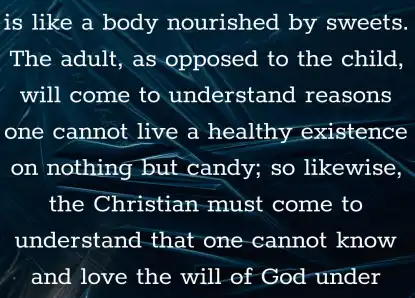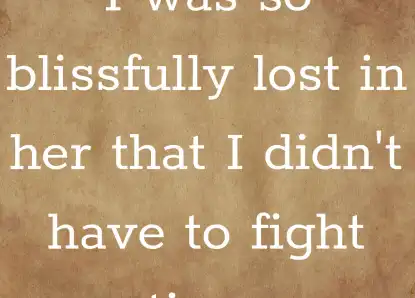
Report, if you have a problem with this page“ The Chinese ideograph for forbearance is a heart with a sword dangling over it, another instance of language's brilliant way of showing us something surprising and important fossilized inside the meaning of a word. Vulnerability is built into our hearts, which can be sliced open at any moment by some sudden shift in the arrangements, some pain, some horror, some hurt. We all know and instinctively fear this, so we protect our hearts by covering them against exposure. But this doesn't work. Covering the heart binds and suffocates it until, like a wound that has been kept dressed for too long, the heart starts to fester and becomes fetid. Eventually, without air, the heart is all but killed off, and there's no feeling, no experiencing at all.To practice forbearance is to appreciate and celebrate the heart's vulnerability, and to see that the slicing or piercing of the heart does not require defense; that the heart's vulnerability is a good thing, because wounds can make us more peaceful and more real—if, that is, we are willing to hang on to the leopard of our fear, the serpent of our grief, the boar of our shame without running away or being hurled off. Forbearance is simply holding on steadfastly with whatever it is that unexpectedly arises: not doing anything; not fixing anything (because doing and fixing can be a way to cover up the heart, to leap over the hurt and pain by occupying ourselves with schemes and plans to get rid of it.) Just holding on for hear life. Holding on with what comes is what makes life dear....Simply holding on this way may sound passive. Forbearance has a bad reputation in our culture, whose conventional wisdom tells us that we ought to solve problems, fix what's broken, grab what we want, speak out, shake things up, make things happen. And should none of this work out, then we are told we ought to move on, take a new tack, start something else. But this line of thinking only makes sense when we are attempting to gain external satisfaction. It doesn't take into account internal well-being; nor does it engage the deeper questions of who you really are and what makes you truly happy, questions that no one can ignore for long... Insofar as forbearance helps us to embrace transformative energy and allow its magic to work on us... forbearance isn't passive at all. It's a powerfully active spiritual force, (67-70). ”

Norman Fischer
From : Sailing Home: Using the Wisdom of Homer's Odyssey to Navigate Life's Perils and Pitfalls



